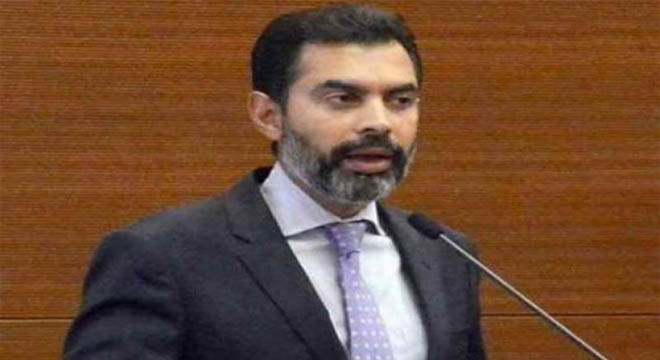ISLAMABAD – Governor of State Bank of Pakistan Reza Baqar has said that the exports have recovered to their pre-COVID monthly level of around $2 billion, with the strongest recovery in textiles, rice, cement, chemicals, and pharmaceuticals. Pakistan needs to focus on competitiveness and reduce imports even further to support local businesses.
Addressing the plenary on “Pakistan’s Economic Response to COVID-19 and Way Forward for an Inclusive Economic Recovery” on the second day of the 23rd Annual Sustainable Development Conference of the Sustainable Development Policy Institute (SDPI) here Tuesday, the governor of State Bank said to boost economic activity and job opportunities in the country, the State Bank of Pakistan is working with the banks to see that lending to small and medium enterprises (SMEs) and housing financing facilities are increased in collaboration with banks. He said that under the Prime Minister’s instruction, the government has coordinated a consistent and holistic policy to promote housing and construction sector. At the central bank’s end, we are working with the banks to help them support this sector, he added. The governor of the central bank said: “India’s economy has suffered sharp decline. Pakistan has not been hard hit because the country controlled COVID-19 well and the government and SBP took timely measures to stop bankruptcies from happening since that can lead to major and long-term implications. Now that demand is coming back from world market, our exporters were ready due to the liquidity and smart lockdowns. What we need to focus on now is to increase our exports-to-GDP ratio.”
Dr Reza Baqir said under the TERF scheme, SBP would refinance banks to provide financing at a maximum end-user rate of 7% for 10 years for the purpose of new imported and locally manufactured plants and machinery for setting up new projects and expansion for existing projects/businesses.
Reza Baqar says country should also increase exports-to-GDP ratio
“As a country, we should be proud that the world is recognizing and acknowledging our success in tackling the COVID-19 pandemic. At the State Bank of Pakistan, we are cautiously optimistic and seeing early signs of a promising recovery. We should not be hostage to our past. As the 5th largest country in the world, we cannot let our expectations for the future be limited by the problems of our past. We have to overcome the baggage of the past and grow optimistic. If we succeed in becoming more forward looking and look at our true potential, we can have great prosperity that will embrace us,” he added.
Dr Baqar said: “The IMF, like the government, wants power sector reforms and reduction of circular debt; second that tax collection should be automated and cases of abuse reduced so that people are facilitated in dealing with tax authorities, plus to increase the tax net. Both the IMF and the government want the same thing in this regard.”
Earlier speaking at a session on “Impact of COVID-19 on Food Security: Challenges for Women”, Ms Androulla Kaminara, European Union ambassador to Pakistan, said that food is not insufficient in Pakistan, but it is inaccessible for the poor and vulnerable classes and communities. The EU ambassador also explained as to how COVID-19, poverty, gendered policies, and many other factors are adding to the food insecurity and injustice towards women.
Rashid Mehmood, Additional Secretary for Ministry of National Food Security and Research, said that Pakistan needs to promote multi-sectoral approach to address food insecurity in the country.
Wouter Plomp, the Ambassador of Netherlands in Islamabad, stressed the need to keep food markets operational so that the food security can be improved and ensured.
Dr Aamer Irshad from Food and Agriculture Organization termed the pandemic a global situation and explained that how the economy and production is reducing due to COVID-19. He highlighted that the bad weather, cost of production and imports are causing food inflation
Speaking at a session on ‘Future of BRI in the Post-COVID World’, Lt-Gen Asim Saleem Bajwa said small developing countries cannot afford packages what the developed countries have allocated for their people to handle the pandemic. In these dire circumstances, BRI is a beacon of hope and relief for the developing countries.
Xie Guoxian, the chairman of ACEF, Beijing said that China has changed the traditional concept of development. From and unconventional point of view, he said, China emerged as a powerful economic power and is also cooperating positively while recognizing all the difficulties of Pakistan.
Xie Yuhong, Minister Counselor, Embassy of China in Islamabad, said that COVID-19 implies that all world should work together to overcome the challenges, including climate changes, etc.
Mudassir Tipu said that CPEC has finally entered into its second phase. Both Pakistan and China want to complete CPEC as soon as possible, he said. Speaking at a session on ‘Government of Tomorrow: Re-imagining the Role of Government after COVID-19’, SDPI Executive Director Dr Abid Qaiyum Suleri said that communication creates incentives for people through transparency of government policies and effectiveness of bureaucracy.
Dr Fahmida Khatun, Executive Director, Centre for Policy Dialogue, Bangladesh said the current situation emphasized upon the role of government on Green Economy rather than focusing on high growth numbers because growth numbers like GDP is not a scale to measure the people’s welfare. Dr Dushni Weerakon, Executive Director, Institute of Policy Studies, Colombo said that COVID-19 has exposed real flaws in our system like limited rights to bureaucrats in implementing policy and lack of integrated disaster management institutions to be prepared for any upcoming disasters.
Speaking at a session on ‘Accelerating SDGs Achievement and Building Back Better from COVID-19 Pandemic in South Asia’, Dr Nagesh Kumar, Director, UNESCAP, stressed the need for national strategies to focus on building better rather than trying to re-establish the status quo preceding the pandemic. He also emphasized that regional cooperation could play an important role to national efforts.
Riaz Fatayana, chairman Parliamentary Taskforce on SDGs, talked about the social, economic, and political challenges Pakistan is faced with and continues to do so due to COVID19. It was also discussed that the problems are universal and as such the efforts to address them should be more holistic. Ms Romina Khurshid, member of the Taskforce, called upon a joint parliamentary response by South Asian parliaments on SDGs achievements.
Nazir Kabiri, Executive Director, Biruni Institute, Afghanistan, said Afghanistan is a fragile economy even before the pandemic and relied heavily on external financing.
Dr. Fahmida Khatun, Executive Director, CPD, Dhaka reiterated that some of the structural challenges of South Asian economies are the same.
Prof. Dr Sachin Chaturvedi, the Director-General, RIS, New Delhi said the local production capacity of necessary protective gear and equipment has seen an unprecedented rise.
Dr Posh Raj Pandey, Executive Chairman, SAWTEE, Kathmandu, pointed out that the mixed progress on SDGs in Nepal is now either erased or will slow down due to reallocation of resources to COVID-19 impact.
Dr. Dushni Weerakoon, Executive Director, IPS, Sri Lanka said the financial & economic fallout of COVID-19 may further impact government programs and priorities as there will now be reducing funding for already cash trapped countries.
Follow the PNI Facebook page for the latest news and updates.









